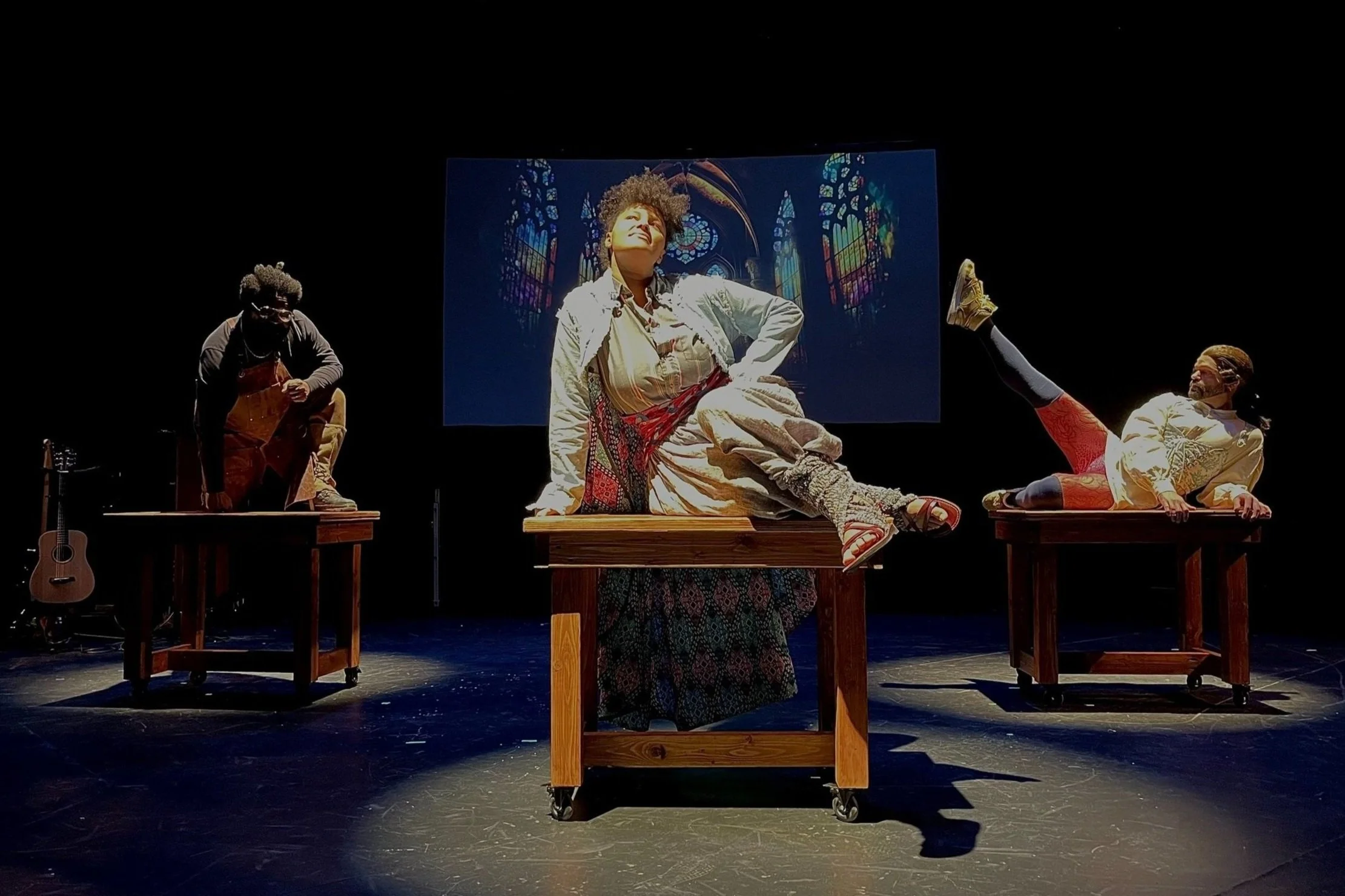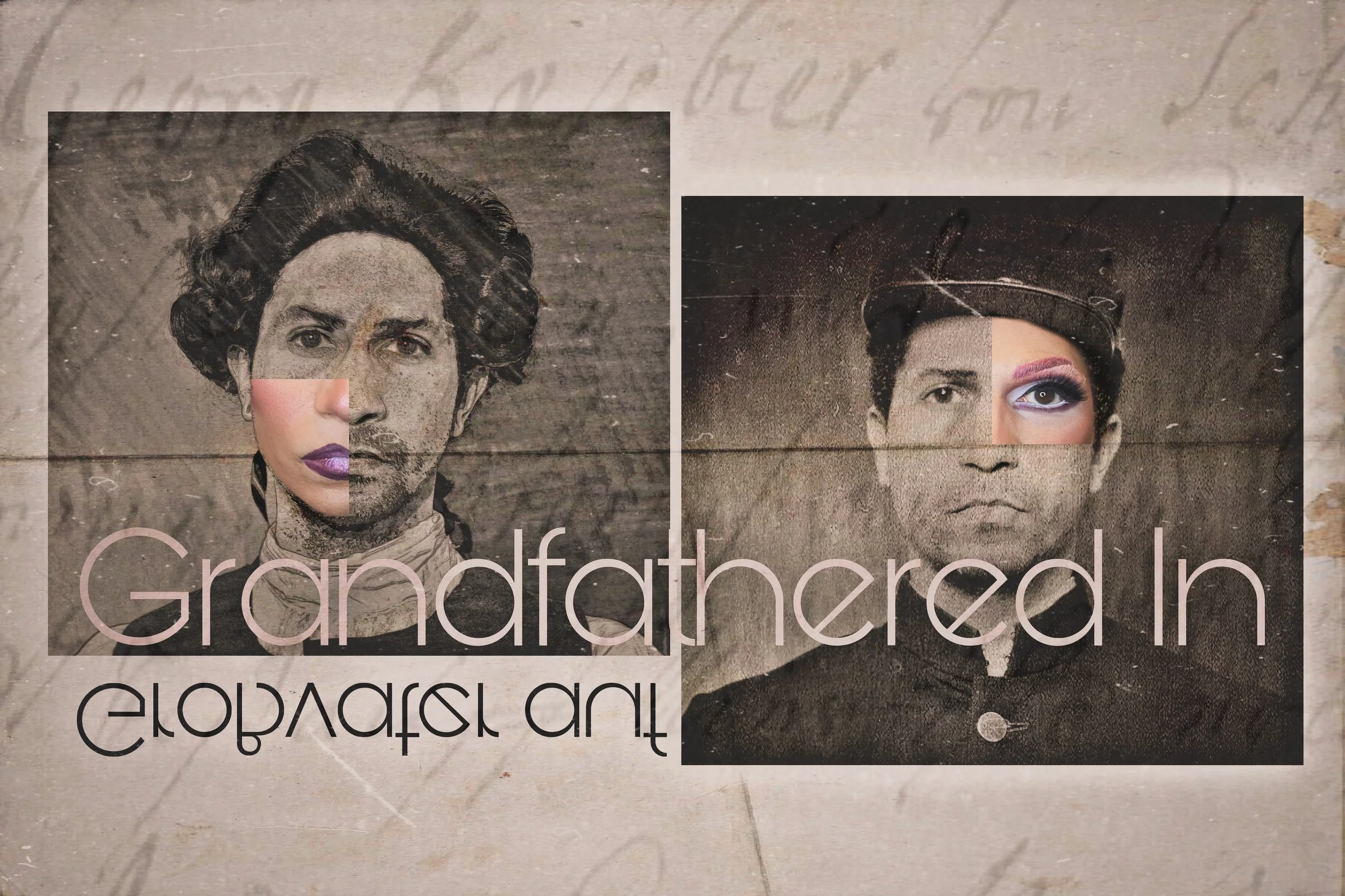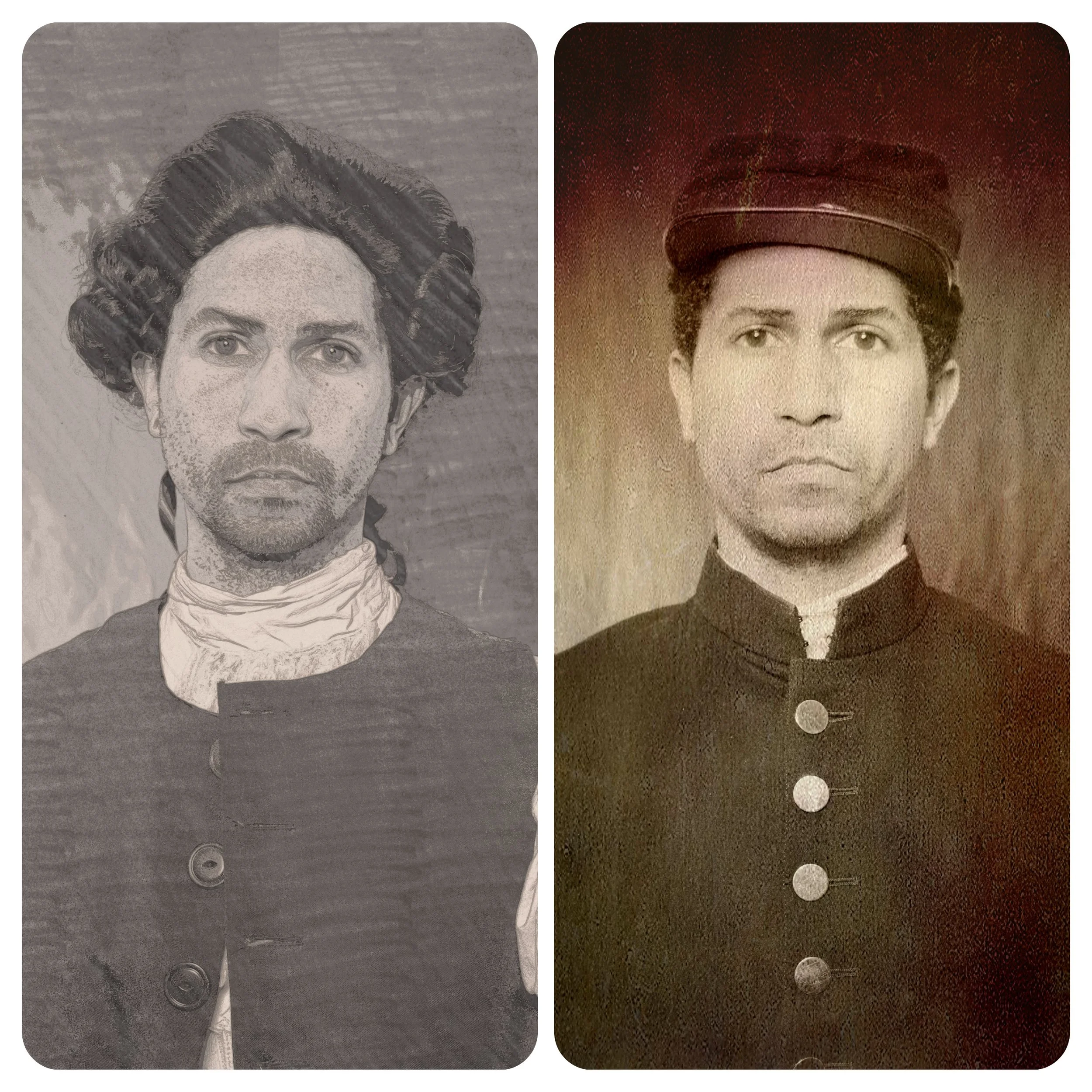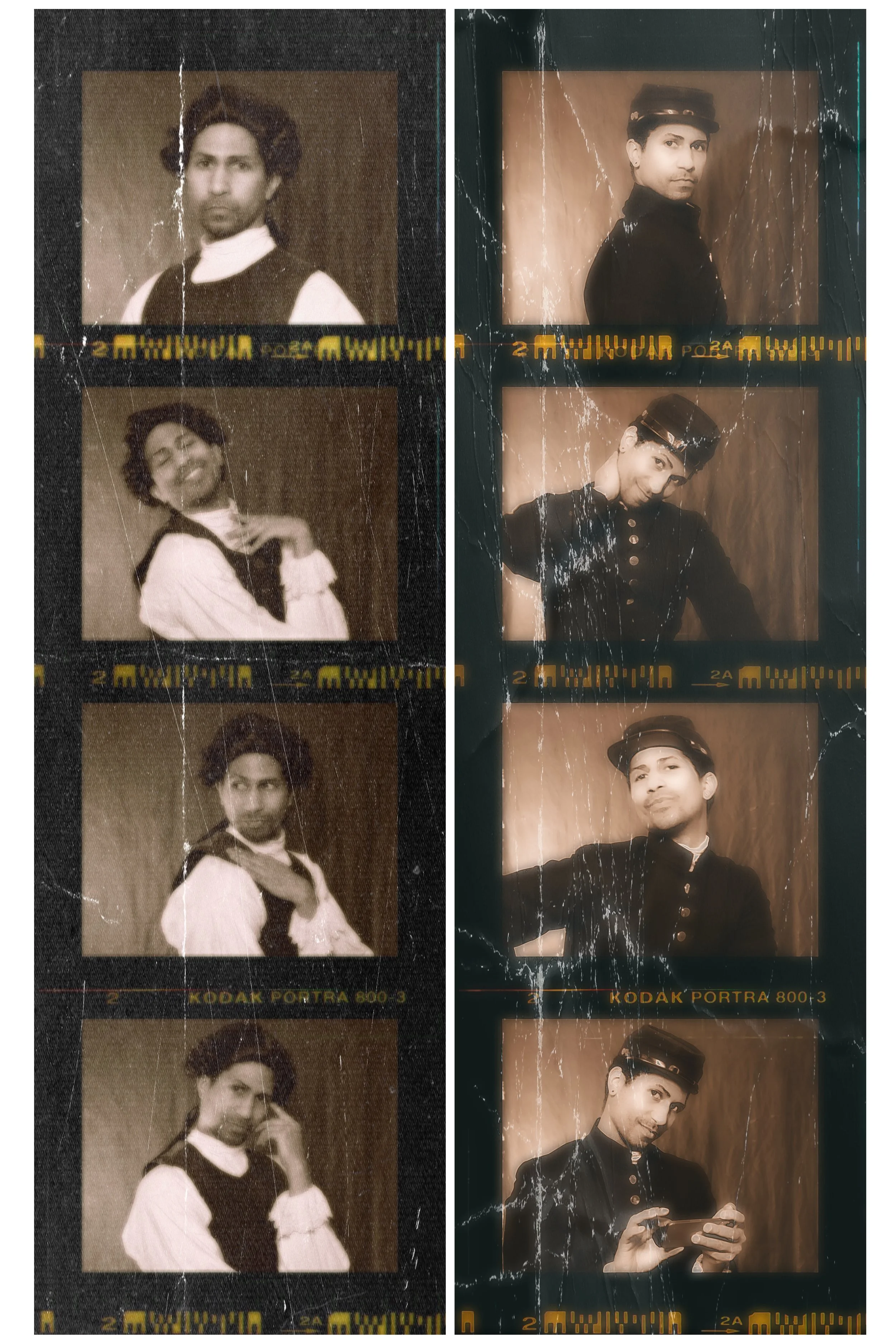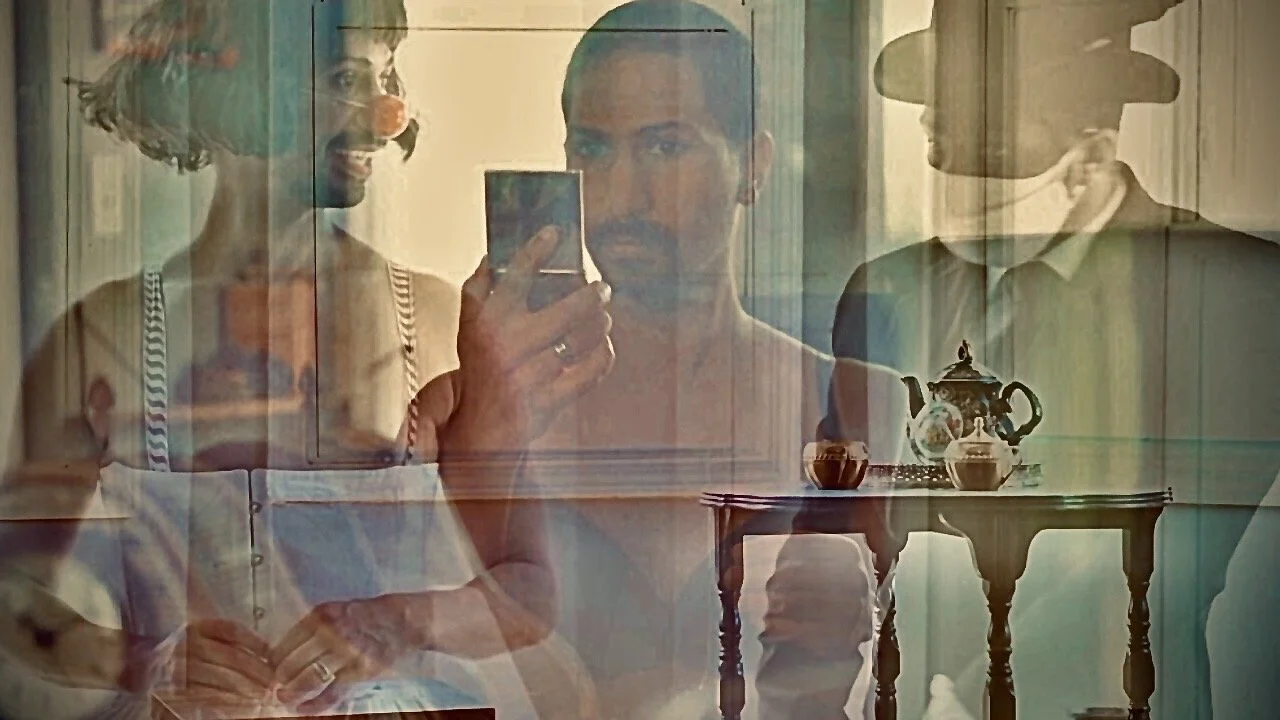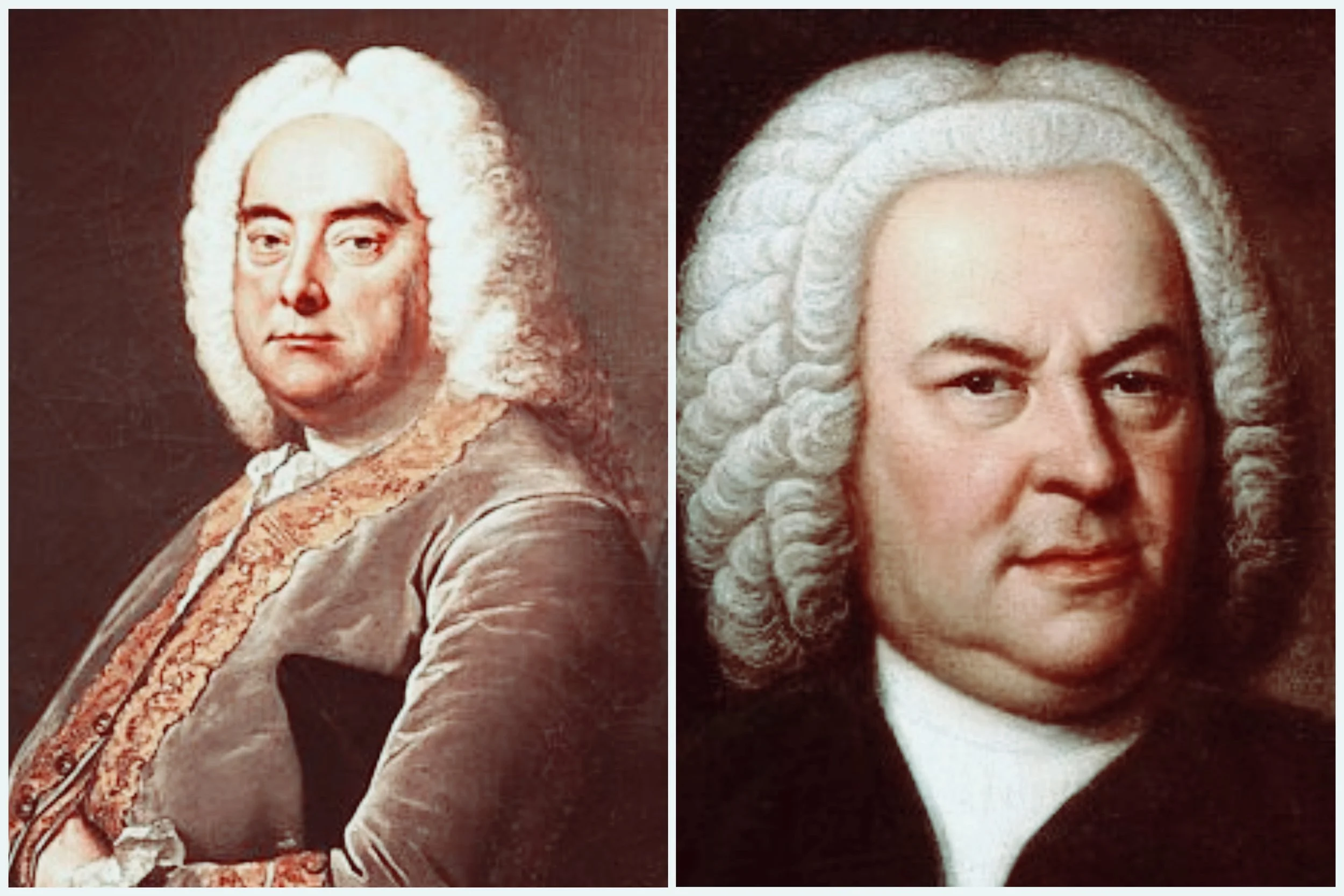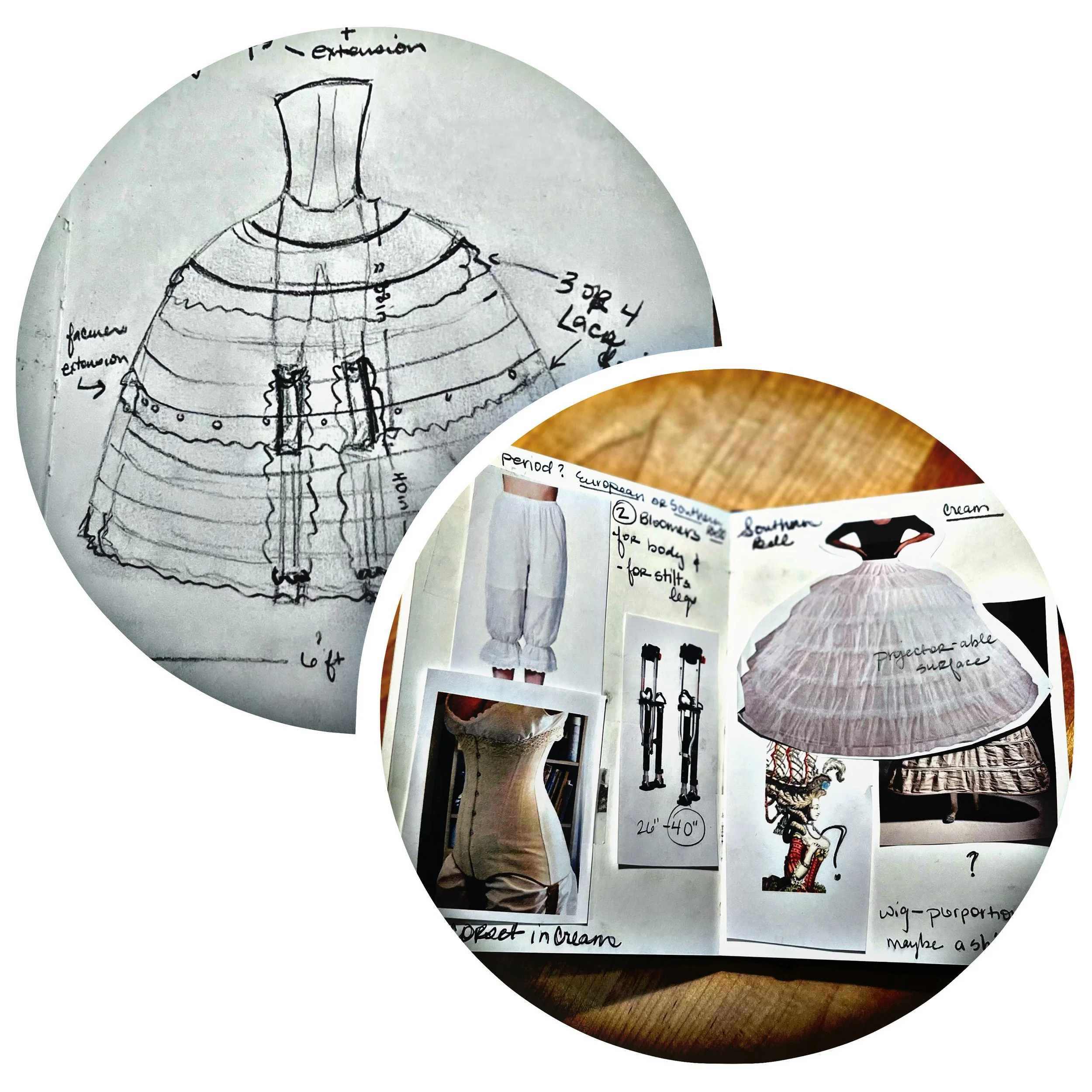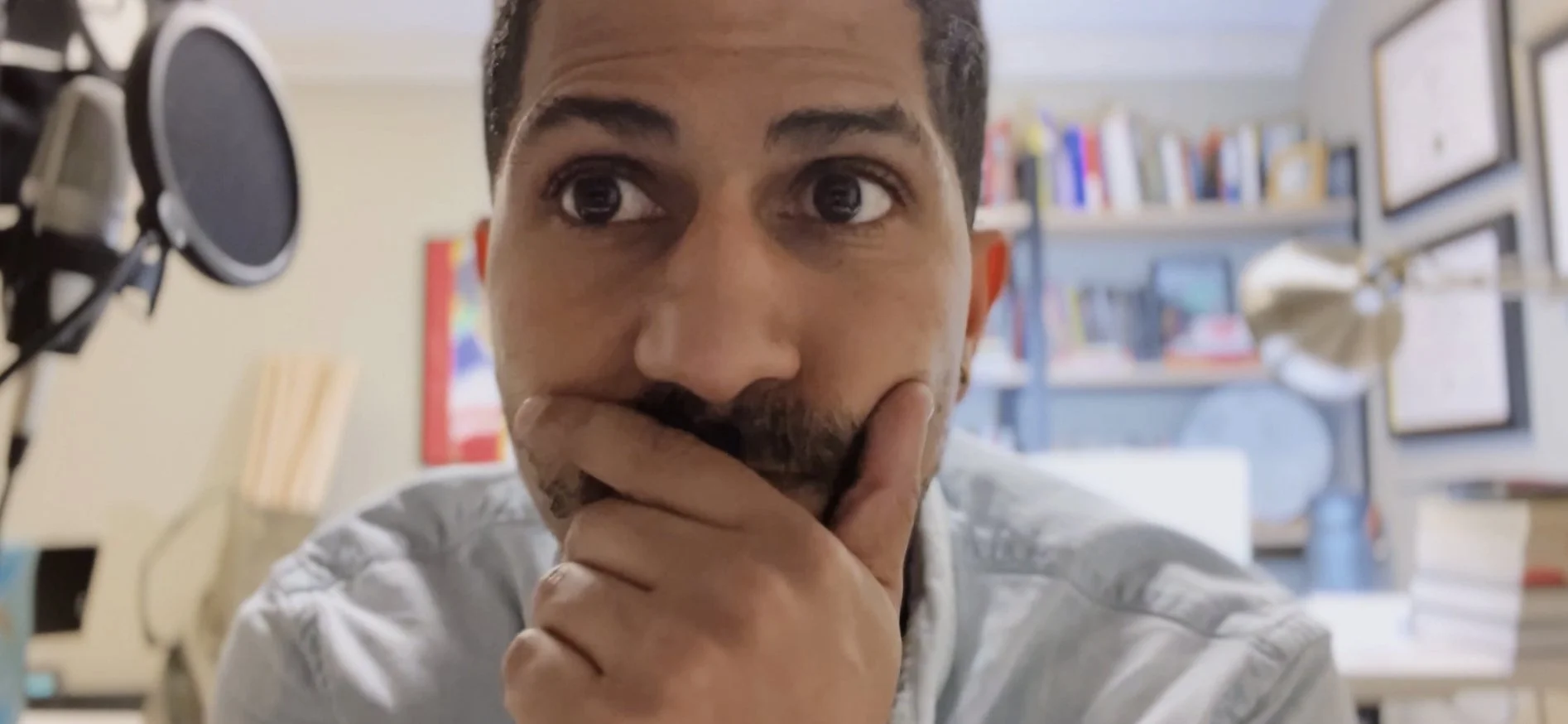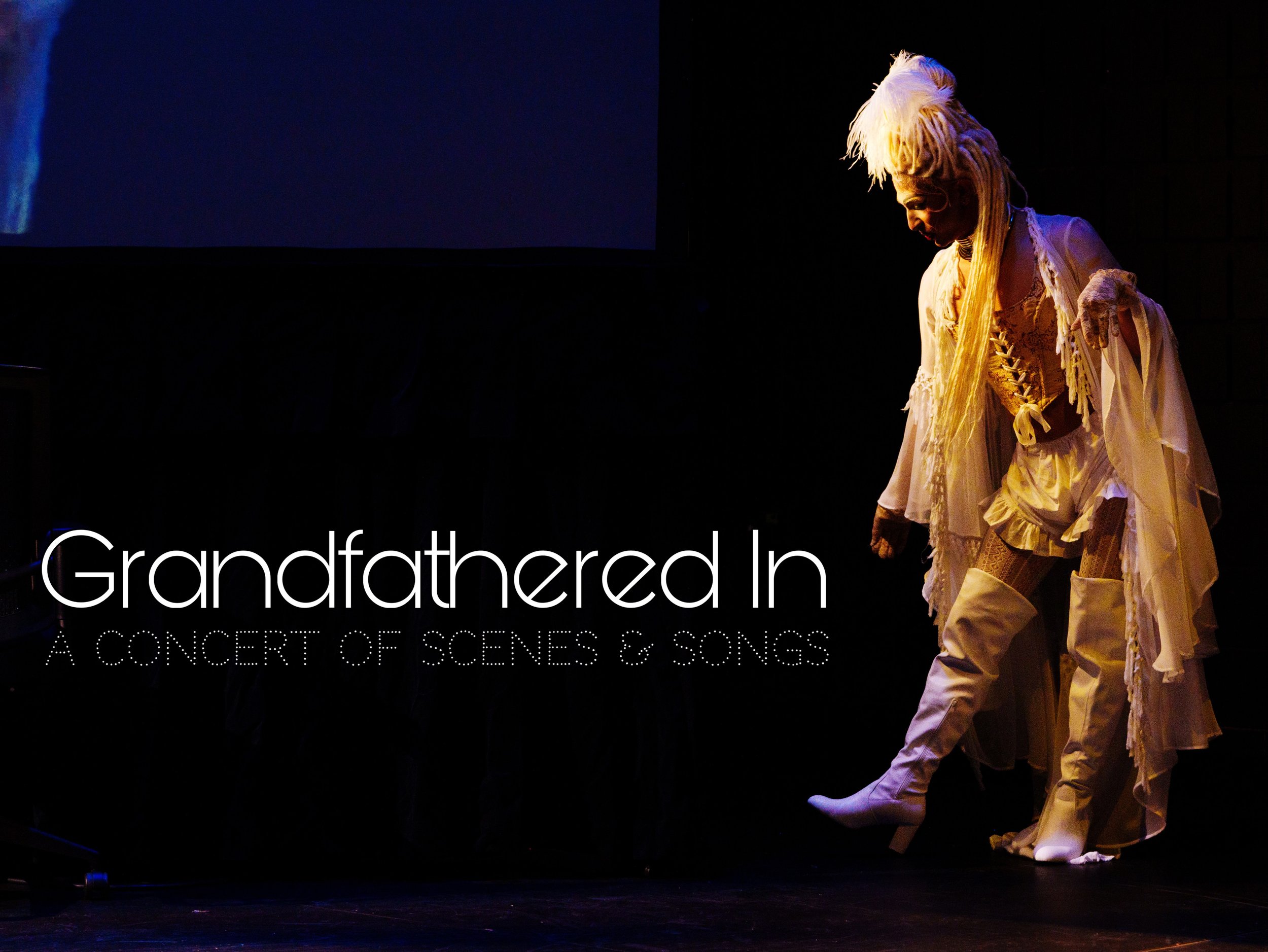
Cover Photo by John West, Trinity Communication, Duke University
Photo by David Landes
SHOW DESCRIPTION
Grandfathered In: a Concert of Scenes & Songs
Conceived and directed by Johann Montozzi-Wood
Co-devised & performed with Robb Beharry, Jessica Flemming, Anthony Hudson; musical collaborations with Michelle Jamail, Louis Landry, Phil Davidson, and David Landes
Grandfathered In is an interdisciplinary research and performance project in which Johann Montozzi-Wood investigates two great-grandfathers from different sides of his biracial family: Dunker, a German immigrant who came to the new world in 1723 to escape religious persecution, and Fuel, a formerly enslaved Civil War veteran born on a North Carolina plantation who co-founded an all-Black colony in Kansas. Johann’s genealogical research includes the National Archive’s Civil War Pension Records, Plantation and Enslavement Documents of Stokes County, North Carolina, and Dunker’s preserved Letter of Manumission and travel journal.
Grandfathered In is a meditation on ancestral grief and healing, queer joy, migration, and hope against the backdrop of a fallen city. The company of interdisciplinary collaborators present a concert of devised musical fragments and scenes set in the near future. They follow Daija (they/them), the fictional great-grandchild of Dunker and Fuel, who struggles to move on with their life after the paralyzing loss of a beloved caregiver. Through the magic of a queer incognito goddess in the form of mysterious heron, Daija is transported to a world of dream and confronted with ancestor beings on a psychic journey at the crossroads of the soul.
This work-in-progress presentation showcases the DNA of the longer piece being developed – a poetic dramaturgy through song, costume, character, aerial, and multimedia performance.
This project received support from the Department of Theater Studies, the Emanuel Azenberg Endowment, the office of Trinity’s Dean of Humanities & Arts, The Duke Endowment Arts Fund, the Manbites Dog Theater Fund, and Queer and Trans People in Education (QTPiE).
Featured in recent article:
Embodying Our Ancestors: Johann Montozzi-Wood’s “Grandfathered In”
-Elizabeth Thompson, Duke Today
MEET THE CHARACTERS
-

MO-THU-GODDESS
played by Johann Montozzi-Wood
-
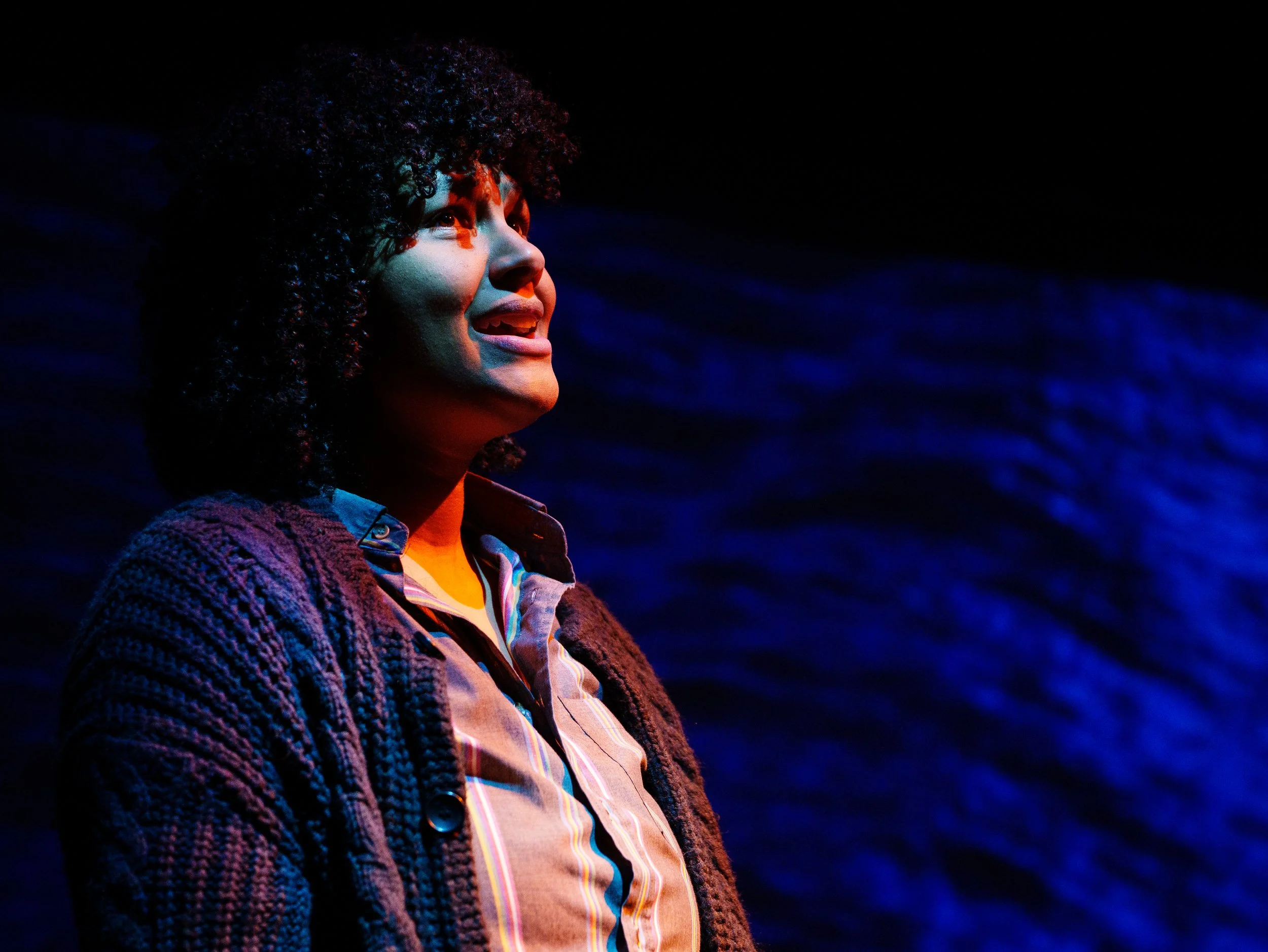
DAIJA
played by Jessica Flemming
-
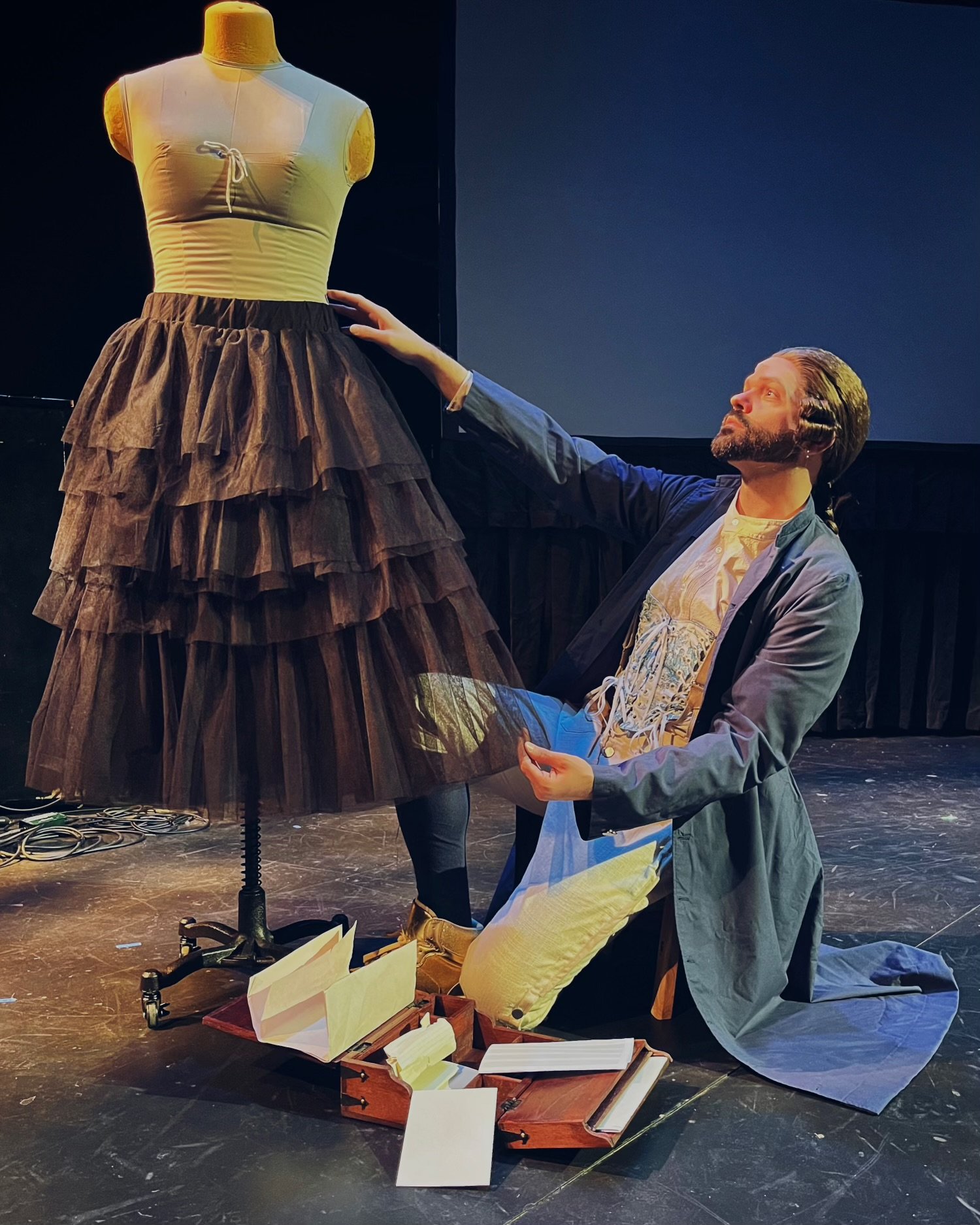
DUNKER
played by Anthony Hudson
-
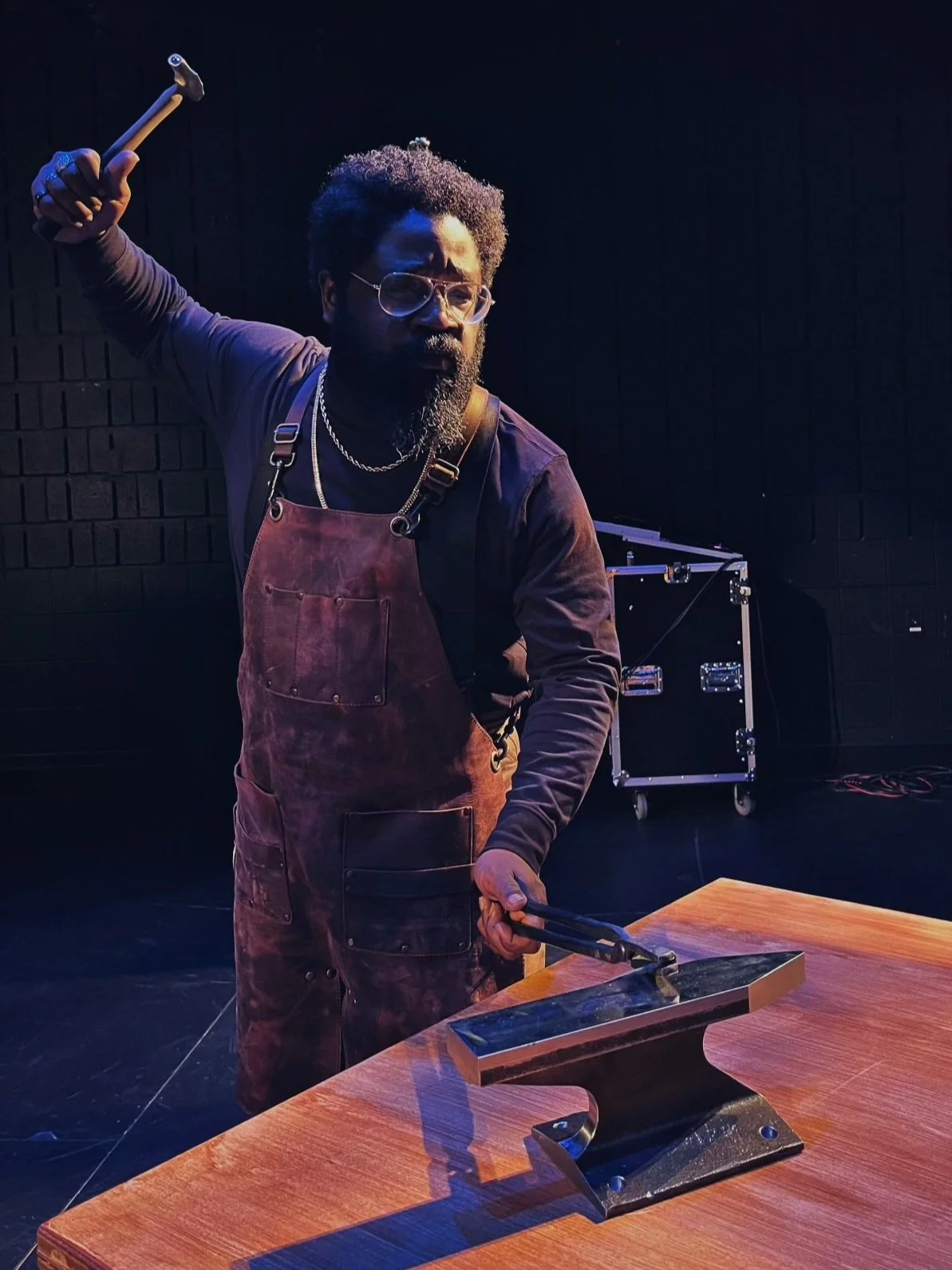
FUEL
played by Robb Beharry
aka DJ MF HANDSOME
Director’s Video
from the February 2024 work-in-progress preshow
DAIJA MEETS THE GODDESS.
excerpt from the work-in-progress showing.

GRANDFATHERED IN:
A CONCEPT ALBUM
COMING SOON!!!
2024 WORK-IN-PROGRESS
CREATIVE TEAM
DEVISERS, WRITERS, & PERFORMERS
Mo-thu-Goddess
Johann Montozzi-Wood
Daija
Jessical Flemming
Dunker
Anthony Hudson
Fuel
Robb Beharry
SONGS & SONGWRITERS
Daija’s Song by Michelle Jamail
Goddess Looking at Me by Johann Montozzi-Wood and Michelle Jamail
Anvil and Hammer – Robb Beharry
The Wind Don’t Lie – Johann Montozzi-Wood
Colored Volunteers – Robb Beharry & Johann Montozzi-Wood
The Tailor and the Goat – Johann Montozzi-Wood & Anthony Hudson
Can’t Remember Before – Johann Montozzi-Wood
Ancestor’s Prayer – Johann Montozzi-Wood, David Landes, Michelle Jamail
MUSICANS
Musical Direction
Louis Landry
Musical Arrangement
Louis Landry
Johann Montozzi-Wood
Transcriptionist
Philip Davidson
Louis Landry
Violin
Philip Davidson
Drums/Percussion
David Landes
Piano/Electric Guitar
Louis Landry
Acoustic Guitar
Johann Montozzi-Wood
DJ
MF Handsome (aka Robb Beharry)
Harmonica
Robb Beharry
VOICEOVERS
Jessica Flemming
Anthony Hudson
DESIGN
Costume Design
Hannah Haverkamp
Wig Design
Stormie daie / Raafe
Projection & AV Design
Stacey Niver
Johann Montozzi-Wood
Lighting Design
Bill Webb
Scenic Design
Bill Webb
TECH
Board Operators
Stacey Niver
Indigo
Wardrobe
Emily Liptow
Technical Supervisor/Operations
Paul Chapman
Stilt Walking Consultant
Bryan Montozzi-Wood
Production Manager
Thomas Quintas
Technical Director
Rich Kleiss
Scene Shop Supervisor
David Berberian
Costume Shop Supervisor
Hannah Haverkamp
Communications
Elizabeth Thompson
Projections & Video Consultant
Austin Powers
*Special thanks to:
Austin Powers of Venue Production Management for live video capture and tech support.
Neal Bell, advising and support - dramaturgical elements and playwriting.
Jacob McCalip (Audio-Visual experiments with film and audio support and consultation.
Christevan Prouty for German translation and accents.
R. Darren Gobert, Chair of Duke Theater Studies
Torry Bend, Advisor & Director of Undergraduate Studies in Theater Studies
William J. Johnson, Divisional Dean of Humanities, Duke University.
Bios
-

Robb Beharry
(he/him)
Robb was born in New Orleans on November 15th 1980, Robert Anthony Beharry is the oldest male in his family. Both of his parents, Ruth and Mujralie Beharry are from the Caribbean island of Trinidad and have raised all three children with that rich culture at the forefront their upbringing. In his late teens, the love of the stage took over and Robb went to the U of Central Florida as a BFA Musical Theatre major. Living in Orlando was a great experience for him being able to work with such talents as Tony Major and Gil Lewis in August Wilson’s Fences, and Phillip Michael Thomas on his original musical Sasha On Broadway among others. Unfortunately, in April of 2008, Mujralie Beharry, a veteran bus driver, was killed in a horrible car accident caused by an irresponsible 22 year old kid. Robb moved back to Tampa to take care of his little sister and sick mother. Being a DJ has expanded his love for music, finding ways to mix the classic soul sound with modern house beats. While djing throughout the Southeast Handsome has play with Mark Farina, DJ Dan, Sabo, Charles Feelgood, Del, King Britt, Roland Clark, Jask, Ron Trent, XL, and Roy Davis jr to name a few artists. Now living in the heart of Downtown Raleigh Thee Handsome Robb is bringing his unique sound and style to the city. Writing trivia for three locations; Paddy O’ Beers, Brice’s Brewing Company , and Coglin’s The 80’s & 90’s Bar, most will find a creatively entertaining evening of questions. But it is the mix, the blend, the transition is when Robb is in his element. Resident Dj at Coglin’s the 80’s & 90’s Bar and Boxcar, a nationally recognized bar and arcade, Raleigh is getting very Handsome. Now that Handsome sound is coming to Lucarne once a month for a special night of musical expression. Teaming up with DJ Pangean, James Leake, Lucarne will be transformed into an experience you won’t soon forget. You might even lose your shirt.
-

Jessica Flemming
(she/her)
Jessica is an actor, singer, stage manager, and theatre educator. She received her BFA in Theatre Performance from the University of Michigan-Flint and has over 15 years of professional acting and stage management experience. Over the last year, she performed with Curious Theatre Collective and Aggregate Theatre to present theater for young audiences. Jessica is currently involved with local creatives to foster play and exploration through performance.
-

Anthony Hudson
(he/they)
Anthony is a queer artist with Southern roots and global branches. He holds a Master of Fine Arts in European Devised Performance from Columbia College, Chicago in conjunction with arthaus.berlin. In addition to his role of Dunker, Anthony is leading students of Duke University through his original workshop “Embodied Recipes: A Devised Sensorial Awakening.” Anthony makes a damn good biscuit.
-
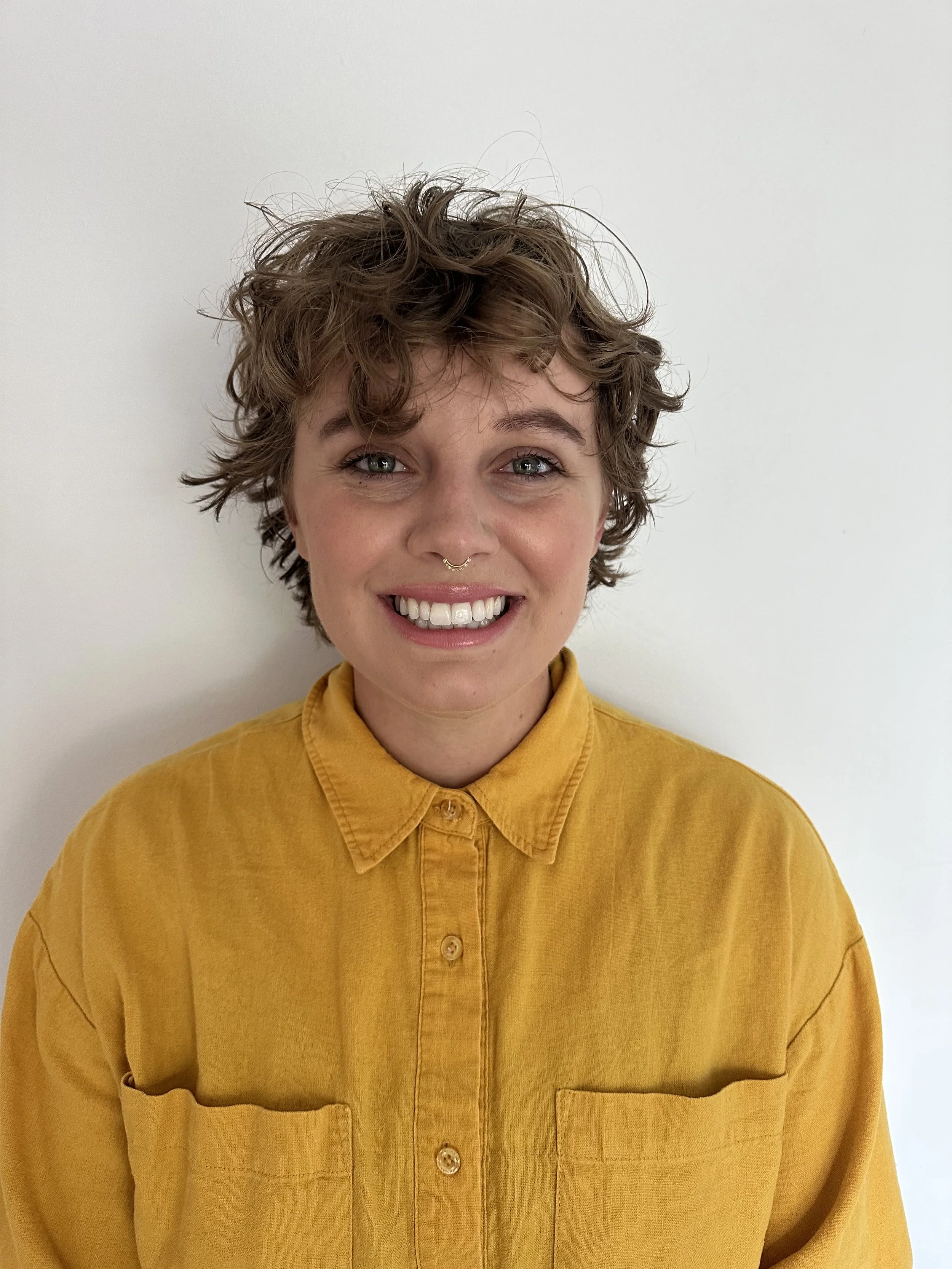
Indigo Cook
Indigo is a first-year MFA student in the Duke dance department's Embodied Interdisciplinary Praxis program. They work within the intersection of movement, music, and contemporary performance practices of experimental and avant-garde art. They relish any opportunity to listen deeply, move wildly, and remain every in flux.
-

Phil Davidson
(he/him)
Phih is a multi-genre violinist based in Austin, TX. He began playing violin at the age of 6 as a Suzuki kid, and went on to major in music at Drake University where he was concertmaster of the university symphony as well as a member of the Des Moines Symphony and Des Moines Metro Opera orchestra. Currently Phil performs regularly throughout the US and Canada with The Invincible Czars, presenting their own new scores to classic silent films. When in Austin he's an active freelancer and teacher in styles ranging from classical and musical theatre to bluegrass, heavy metal and world music. His recent recording credits include Bond Fusion Music, LOLA - Local Opera Local Artists, Flamenco Symphony, and Muppletone.
-

Hannah Haverkamp
LECTURING FELLOW OF THEATER STUDIES
Hannah Haverkamp is a career creator - whether it’s costumes or comics - you name it, she’s tried it, and she’s gotten up to her elbows in it.
Educated in history and studio art at Beloit College, Hannah daily uses her liberal arts background to take a holistic view of every creative endeavor. She graduated in 2014 with a Bachelor of Arts in History, and with a minor focus in Studio Art. She decided to pursue the arts full-time after graduation, but as a result of her education and varied interests, her approach to everything is unfailingly intersectional. She received her Master of Fine Arts in costume design from the University of Illinois in 2023.
Hannah’s career has taken her from the woolly wilds of Wales, to the Driftless area of Wisconsin, and the arid mountains of Santa Fe. She currently teaches costume design and manages the costume shop at Duke University.
-
Louis Landry
(he/him)
Louis lives in Durham, NC. He holds a B.A. in Music Performance from VCU (Richmond, Va). He writes, records albums, performs on several instruments, and teaches.
Landry’s music celebrates tradition and explores innovation. He works in rock and roll, blues, jazz, classical, and bluegrass; he sings and plays over twenty instruments, including melodica, vocoder and nebulophone. He has toured extensively as a backing musician in North America and the UK.
Landry grew up with music and was especially inspired by his father, New Orleans-born jazz pianist Jimmie Landry. Louis has lived in North Carolina since 2011, following stints in Virginia and Texas. In addition to performing, he also teaches private lessons at High Strung School of Music, and leads music classes for local preschools.
-

Michelle Jamail
(she/her)
Michelle is a singer/songwriter living in the “Live Music Capital of the World,” Austin, Texas. She is a founding member of Magnolia Blue Trio (formerly The Mint Juleps) which recently released two singles, Better Without You and Can’t Keep Me Away (From You), available now on all streaming platforms. She is a certified level 2 music together teacher with a BS in Applied Learning and Development from the University of Texas. In any given week, Michelle can be found fostering the love of music in the youngest of learners at Heartsong Music and Bluebonnet Montessori and facilitating hope, healing, and connection in those living with dementia and Alzheimer’s through the Love Notes Chorus.
From an early age, music has been Michelle’s truest companion and most profound form of expression. Drawing inspiration from personal experiences, as well as the world around her, Michelle crafts songs that are as genuine as they are compelling. Rooted in folk and harmony, Michelle uses her storytelling to create music for her students, for herself (as therapy!) and for her band. She is excited and grateful for the opportunity to collaborate with her bestie and “kindred sparkle” Johann, in creating songs for Grandfathered In!
-

Em Liptow
(she/her)
Em is a dancer and performing artist, facilitator, and creative producer from Cleveland, Ohio, currently pursuing an MFA in Dance/Embodied Interdisciplinary Praxis. Her practice is shaped by contact improvisation, capoeira, circle singing, and devised theatre, and her creative research swirls around ritual, tactility, thresholds, and intergenerational community. em has devised and performed original work at Borderlight Fringe Festival, Maelstrom Collaborative Arts, and Cleveland Public Theatre. While dancing with people is one of her most favorite things, dancing with trees comes in as a close second.
-

David Landes
(he/him)
David is a jazz drummer and professor who’s taught writing/speaking in Beirut, Shanghai, and Dubai. He researches today's unusual forms of attention that didn't exist before.
-
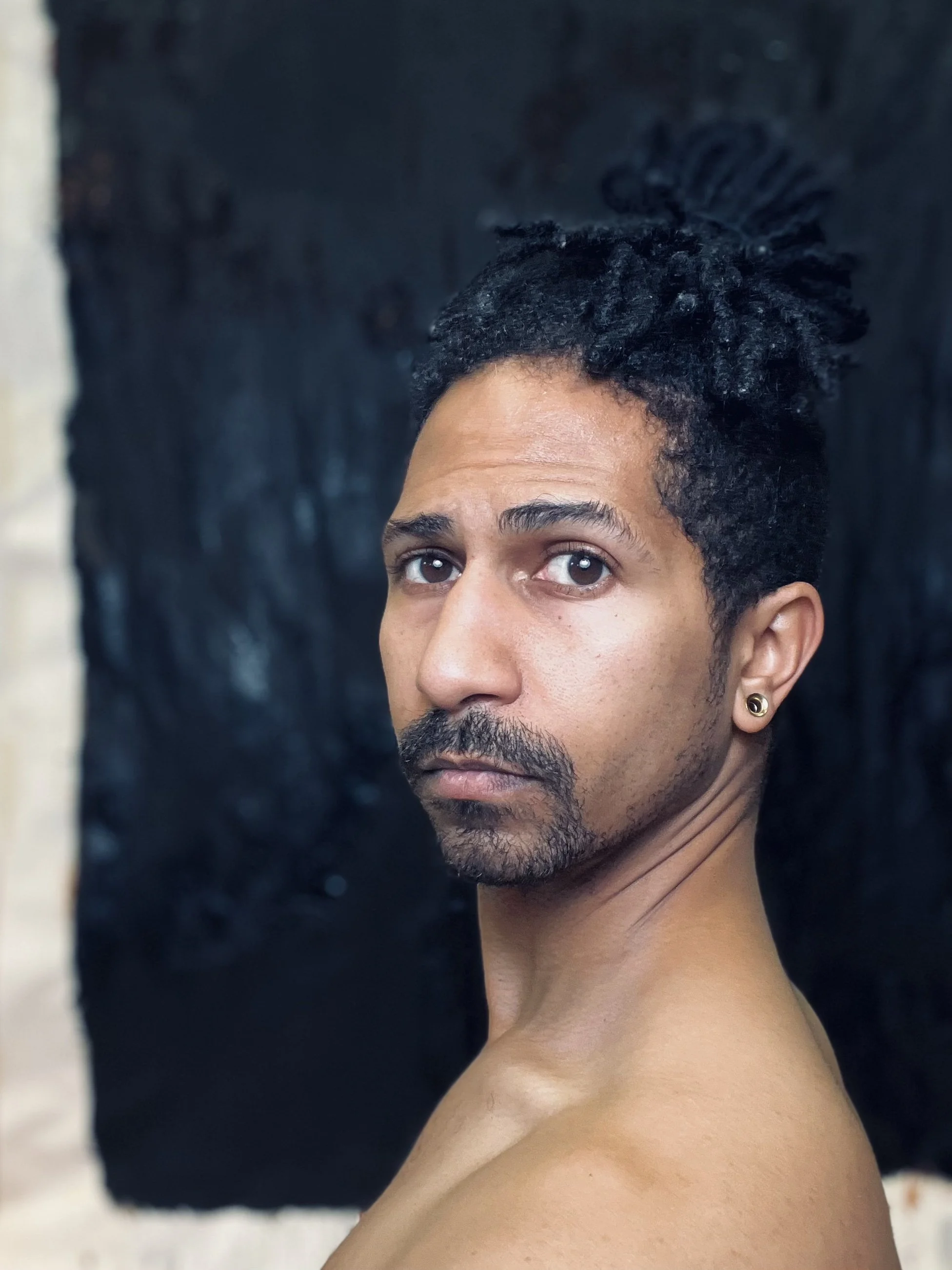
Johann Montozzi-Wood
(all pronouns)
Johann is an assistant professor of the practice of theater studies at Duke University. He holds a Master in Arts in Theatre Studies from the University of Central Florida and Master of Fine Arts in European Devised Performance from Columbia College, Chicago in conjunction with arthaus.berlin International School. His creative and research interests explore critical intersections of race and sexuality through devised performance practice, embodied research, and postmodern aesthetics in theatre, music, and dance.
As an actor, Johann was awarded Memphis’s 2020 Ostrander’s Award for Best Lead in a Musical for his work on the title role in Jelly’s Last Jam at Hattiloo Theatre. Johann is a member of Actor’s Equity.
As an artist-scholar, Johann has recently completed an artist-in-residency and lectureship at the University of Vermont, Berlin where he directed a devised version of Joe Landry’s radio play - It’s a Wonderful Life. He has contributed to a Bloomsbury publication writing a chapter entitled: “Queer Epistemologies in the Making of Queer Makishi: Visibility, Trans-position, and Devised Performance Practice” in Performing Arousal: Precarious Bodies and Frames of Representation (2021). He is currently awaiting the publication of a Cambridge anthology chapter in which he explores the possibility of Black flâneurie and Baldwinian “strangeness” in Drifting Through Wonderland: The City as Performance.
Currently, Johann is conducting research for a devised project called Grandfathered In inspired by the migration of two great grandfathers from different sides of his bi-racial family. In this piece, Johann is wrestling with the relationship of servitude, slavery, and racism as queer lineages of migration and mixedness as a queer epistemology.
-
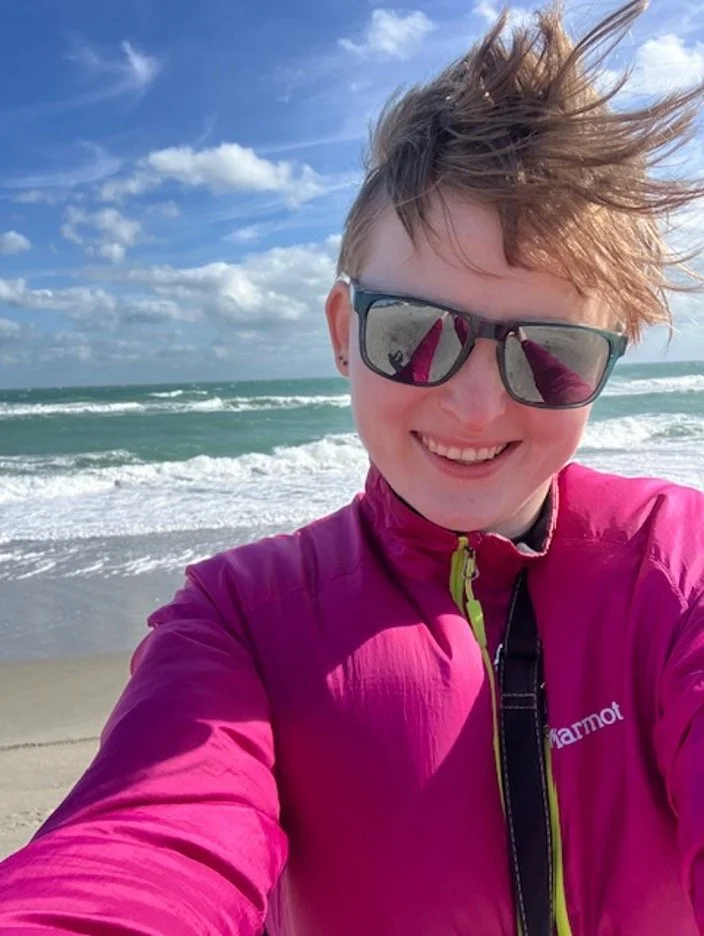
Stacey Niver
(they/them)
Stacey is eternally chaotic, frequently competent, feral artist delighted to temporarily become whatever is needed for this project (as long as that puts me safely behind a tech table where I belong).
-
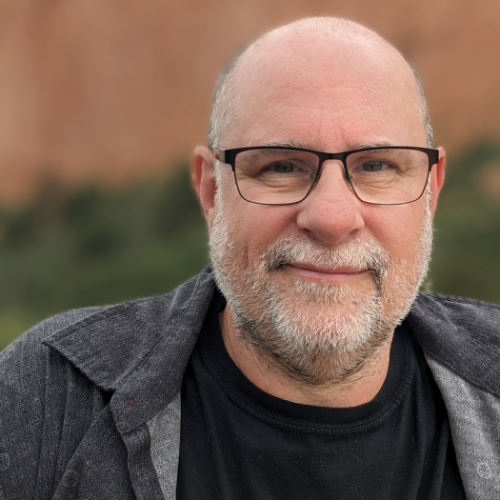
Bill Webb
Grandfathered In Project:
A Dramaturgy
2021-2023
Self-Portrait as Dunker (left) and Self-Portait as Fuel (right)
Grandfathered In is a multimedia project that extends the parade of masks Johann began to develop in Queer Makishi. This project moves away from the triple-consciousness of the author into an embodied investigation of two great-grandfathers from both sides of his biracial family: Johann Georg Käsebier (Dunker) of Germany who fled religious persecution to Pennsylvania in 1724 and Fuel Williamson, a formerly enslaved Black American and Exoduster who fled racial discrimination and co-founded an all-Black colony in Kansas 1878.
migration | queer exile | belonging | psychogeography | mixedness as queer epistemology | performance as research
a queer re(mix)ology
The purpose of this performance-based research is to creatively embody a theoretical investigation of mixedness as a queer epistemology that seeks to cut across rather than divide up the map of humanity. Beyond racial hybridity, I define mixedness as both a “thing” and a “process,” a bio-psycho-social phenomenon that rejects notions of purity and embraces epistemologies that traverse boundaries of body, culture, and nation. However, queer mixedness is not only diasporic eruptions of space and body but syncopations of time that challenge our notions of how the uncanny past disrupts and (re)emerges in the present through the “embodied spatio-temporal events” we call performances (Hannah and Harsløf 13). Mixedness as a queer epistemology aligns with the Foucauldian notion of genealogy as lineages of disruption that reject history as an unbroken continuity that “map the destiny of a people” through the search for a “hierarchy of origins” (Foucault 140,146). Rather, queer re(mix)ology, as I call it, inscribes the body in relationship to chance based on innumerable, human disparities. Genealogy as a chance-driven, bodily inscription accents the events of history as “its jolts, its surprises, its unsteady victories and unpalatable defeats,” what I call, radical syncopations (Foucault 144). Queer re(mix)ology is a methodology for how intersectional and interdisciplinary artist-scholars, like myself, can position their own body-stories within the intertextual lineages that collage across space and time in uncanny ways.
“Bringing back the dead (or saving the living from the shadow of death) is the ultimate queer act.”

(RE)SEARCHING DUNKER
-
Bio Bullets of an 8th Great Grandfather
Born: 6 August 1693 , Dessau, Sachsen-Anhalt, Germany
Died: 19 December 1924, Roxborough, Pennsylvania (age 31)
Wife: Maria Elizabeth Mathes
Son: Christian Gottfriend Kasebier
Tailor & Farmer

-
Schwarzenau Brethren
The Schwarzenau Brethren (aka The Church of the Brethren) was founded by Alexander Mack in 1709. The Brethren were pacifists, radical pietists, and universalists believing all of humankind ought to live peacefully as we are destined to return to God. As Anabaptists, they were often called Dunkers/Tunkers because they expressly believed in baptism after the age of accountability (usually around 13) and a trine immersion face forward. Similar to the Quakers and Minnoites, they also observed a simple life, personal devotion to God, and a threefold lovefeast that included: washing of feet, a meal, and communion often offering a holy kiss to one another are part of their fellowship.

-
Letter of Manumission
“…by special grace resolved to grant his petition, and to release him and his wife and children of the bondage, and of all other obligations at this time being, but with the strong reservation, that if he Johann George Käsebier, or his family, before short or long, may come to this here county, to settle down again, he, or they, will become subjects again, and liable to fulfill all their obligations as before.” - Archives of the Princes von Sayn-Wittgenstein - Castle Wittgenstein, Sig. W 61.9 (ledger)

-
A Journal with a Prince in Mind
On August 3rd of 1724, Johann’s ship set sail from Rotterdam and disembarked in Philadelphia on November 2nd.
We know this because Johann wrote an account of his voyage and of his two months in the New World with his wife and children to be sent back to Count Casimir in gratitude for his release from servitude. In the letter, we also see him encourage the Count to allow others to be released to this “precious land with the finest wheat….corn, maize, and white beets of such a quality as I never saw in Germany.”
Forever a Tailor - “There was a great deal of goods among the passengers - at least 100,000 sewing needles, not to mention other things.” -J.G. Kasebier,
(Image Collage of Count Casimir and the Port of Philidelphia, 1930s.)

-
Playlist - German Proverbs and Folk Music
Currently, Johann is working with UVM Emeritus Professor of German and Folklore, Wolfgang Mieder, founder of the International Archive of German Proverbs, exploring proverbs and folksongs contemporary to Dunker. Johann intends to incorporate this collaborative research into the script and/or libretto of the Grandfathered In project.
In 1724, classical German composers, like Handel and Bach, were producing works such as:
Opera: Guilio Cesare in Egitto (Handel)
St. John Passion (Bach)
Georg Fredric Handel (left) & Johann Sebastian Bach (right)
-
Emerging Poetic Themes
Elements: Water, Wine, & Wind
Fabric, Textiles
Ships, Sails
Needles
Birds- Crane
Handwriting, letters
Religion & religious descrimination
New Testament
Monoarchy/Serfdom/Servitude

(RE)SEARCHING FUEL
-
Bio Bullets of a 4th Great Grandfather
Born: abt 1832, Stoke Co., North Carolina, USA
Died: 25 April 1902, Topeka, Shawnee, Kansas, USA (age 70)
Wife: Charity Harding
Children: (6-10 children) descendant of Benjamin F. Williamson
Blacksmith and Farmer
Civil War Veteran (15th USCI, TN - served 1863-1864, abt age 31)

-
"Men of Color, to Arms!"
Fuel heeds the call to serve in the Union early.
Fredrick Douglas gave a speech (March 2, 1863) in Rochester, New York calling all men of color to arms in the hope that if Black men could die for their country then surely they could be citizens of their country. But they would not let us fight.

-
Defending Nashville - Chattanooga
November 21st, 1863, Fuel enlisted for service in the 15th USCI to defend the railyards of Nashville along Cumberland River from the Rebels.
Instead of sending Black Americans to fight, military leaders used the formerly enslaved volunteers as labor fearing that Blacks could not be trusted, that they would rather run than fight. (Picture -Hoobler Nashville Railyard Depot - defended by the 15th USCI.)
Using the US National Archive’s Civil War Pension Files, Johann is creating an image of Fuel’s condition returning from the war.

-
With "Pap" and the Exodusters
When Reconstruction failed, Fuel witnessed the steep frequency of lynchings in his neighborhood in the 8th district of Nashville fin a matter of months. Poster’s were circulating at the time by a Benjamin “Pap” Simpleton to head out to the home state of John Brown. Fuel joined Pap and other Exodusters to start all-Black colonies in 1878 Kansas.

-
Singleton Colony of Morris and Lyon
Fuel’s name is found along with twelves others including one Benjamin “Pap” Singleton.
Unfortunately, these colonies failed. The mass exodus out of the Jim Crow South overwhelmed them. Christian White Folks performed their allyship by not supporting the ambition of these Black Americans but rather chose to “save” Blacks from themselves by setting up refugee camps close to established cities like Topeka. White residents responded with a cascade of anti-Black legislation limiting the rights of hopeful Exodusers who believed they were coming to a promised land of opportunity.

-
Playlist - Blues, Spirituals, Worksongs
“The Colored Volunteers”
“Swing Low, Sweet Chariot”
“Sometimes I feel Like a Motherless Child”
“John Brown’s Body” (to the tune of “Glory, Glory, Hallelujah”)
“Many Thousands Go”/”No more Auction Block”
“We are Coming, Father Abraham”

-
Emerging Poetic Themes
Elements: Fire & Earth
steel, gunpowder, coal
Railroads, steamboats
Animal, land walkers, Lions
Imagination, printed text, posters
Racial discrimination, lynchings
Old Testament
Slavery, democracy, citizenship
Costume Sketches and ideas for this mixed queer daughter of colonialism to give birth to the grandfathers.
As Johann works toward a work-in-progress showing of his ideas. Johann is working with designers to construct a 6 ft wide hoop skirt outfitted for a stilt performer. The idea is that the grandfathers, as brothers of colonialism, will be born from under this 6-8 foot high dress which will also be used to create silhouettes and as a projection surface for documentary material and shadow puppetry inspired by German Expressionism.
Screen Capture of Maria AunTea from Johann’s devised short film, QUEER MAKISHI.
“12 Little Negro Boys”
Inspired by my research on Germany’s colonial history, I wrote a folksy chorus about the “12 negro boys, six of them decorated in golden chains” that the Dutch Indian Company sent to Germany’s king as part of the contractual agreement made in the sale of the Brandenburg African Company (modern-day Ghana) in 1717.
Lyrics
TWELVE LITTLE NEGRO BOYS, DEC’RATED IN CHAINS
SIX OF THEM GOLD AND SIX OF THEM WERE PLAIN
BOWED TO THE KING AND QUEEN, MOST OF THEM THE SAME
TWELVE LITTLE NEGRO BOYS DEC’RATED IN CHAINS
More to come on how Johann queers this simple song in collaboration with musicians and sound engineers.
Johann experiments with a vocal looper creating harmonies to sing over possibly as a feature of live performance(s) to come.

Intended Project Deliverables
Concept Album of original and covered folk music music
Stage Performances: new music/tanz theater piece
Documentary Film and art Installations
Pedagogue: methodologies and theoretical approaches
Book Writing and other Publications
Visual Bibliography
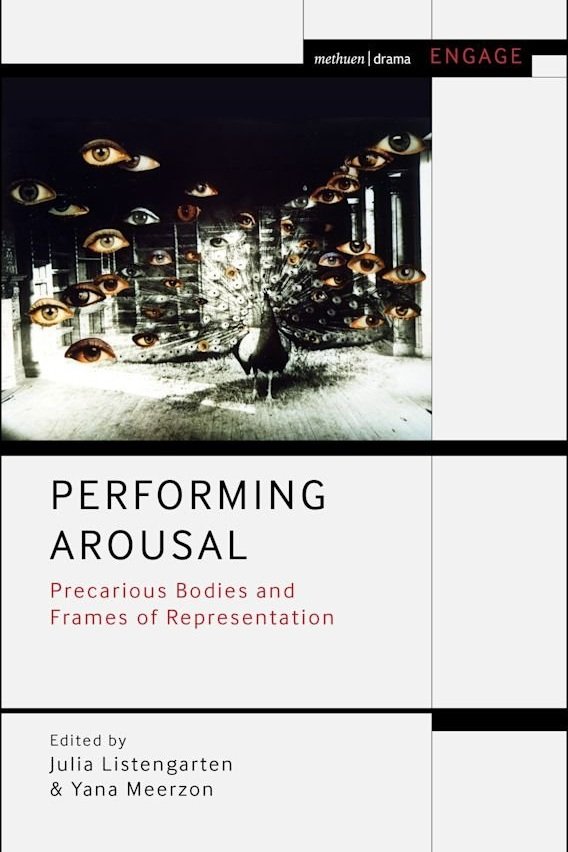
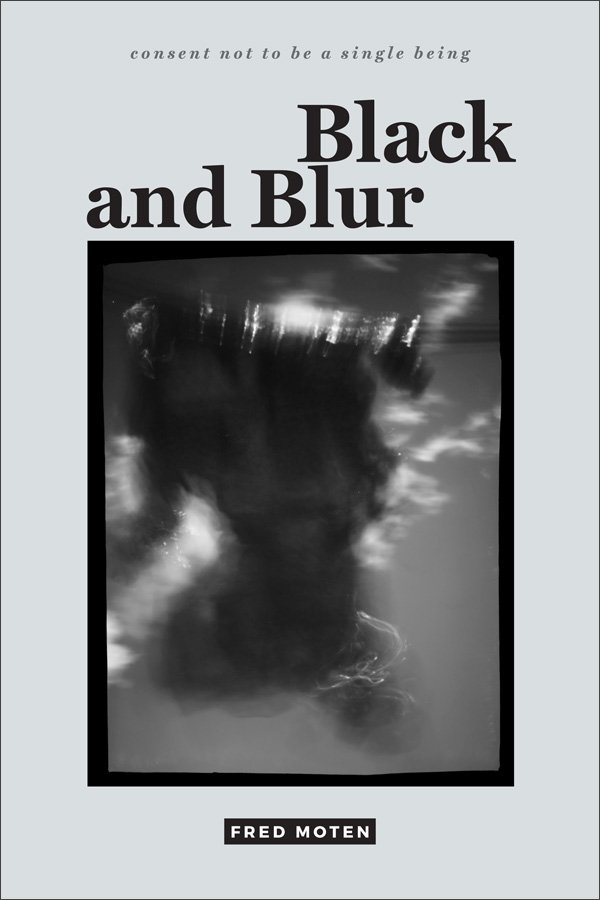



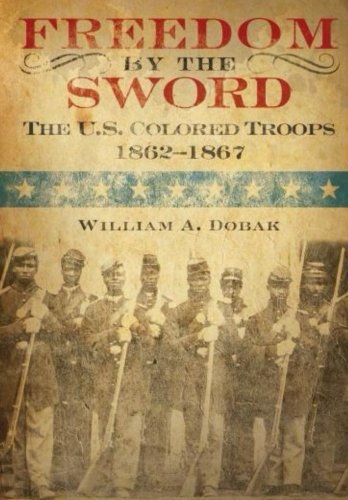
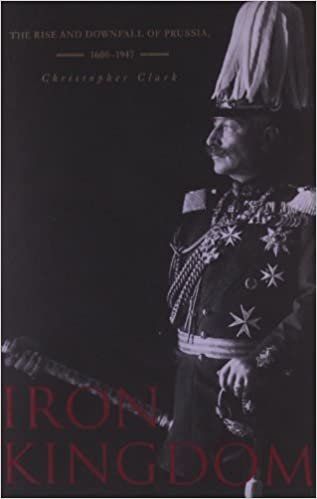
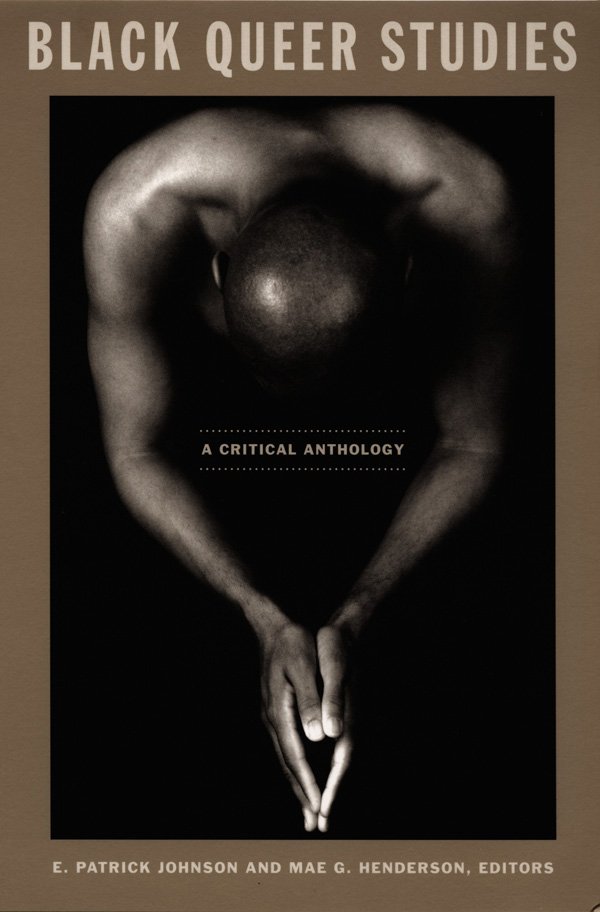
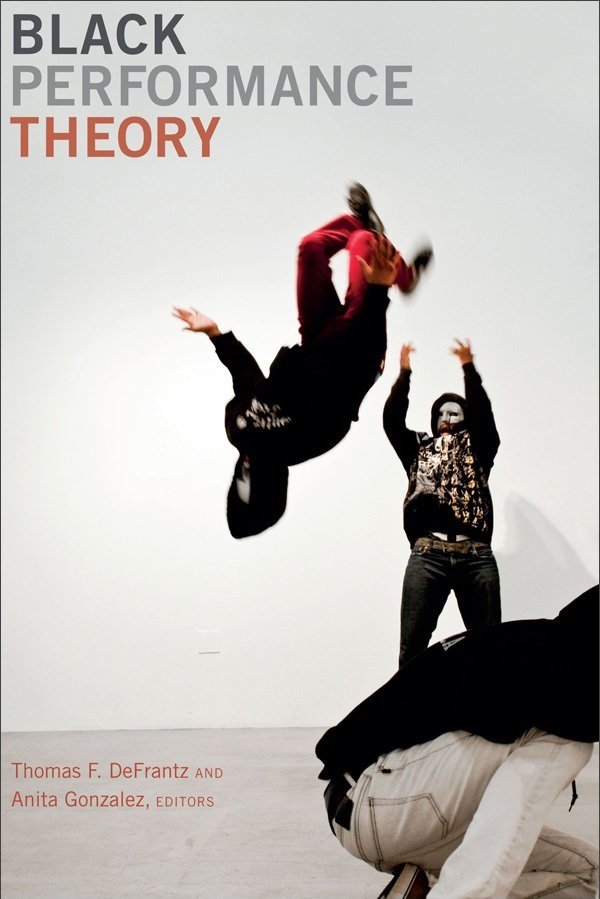
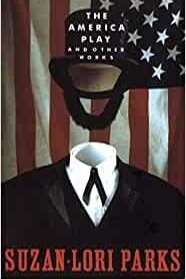

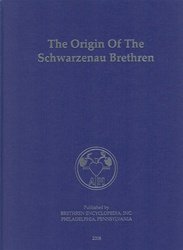
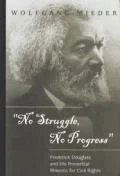
Gratitudes Along the Journey
To UVM’s College of Arts and Sciences for approving course release for Johann to initiate this research (Dean Bill Falls & Chair Paul Besaw), PDF funds to support the purchase of books, props, and accessories, and costume pieces supplied in kind by the Department of Theatre and Dance’s costume designer (Martin Thaler) and shop manager (Sarah Bush).
Research reported on this website page and presentation was supported by the University of Vermont’s Queer and Trans People in Education (QTPiE)’s 2022 Black Quare Scholar Mini-Grant (Jay Garvey, PhD & Romeo Jackson)
For the mentorship, advice, and collaboration of UVM’s Department of German and Russian Studies (Helga Schrechkenberger, PhD) and the International Archive of German Proverbs (Wolfgang Mieder, PhD).
To the Fürstlich Sayn-Wittgenstein-Berleburgisches Archiv, Berleburg, for thier generosity supplying photocopies of original documents: Johann Georg Käsebier’s Letter of Manumission (1724) and his journal sent as a letter to Court Casimir von Sayn-Wittgenstein in 1725 (Marcus Stumpf, PhD).


